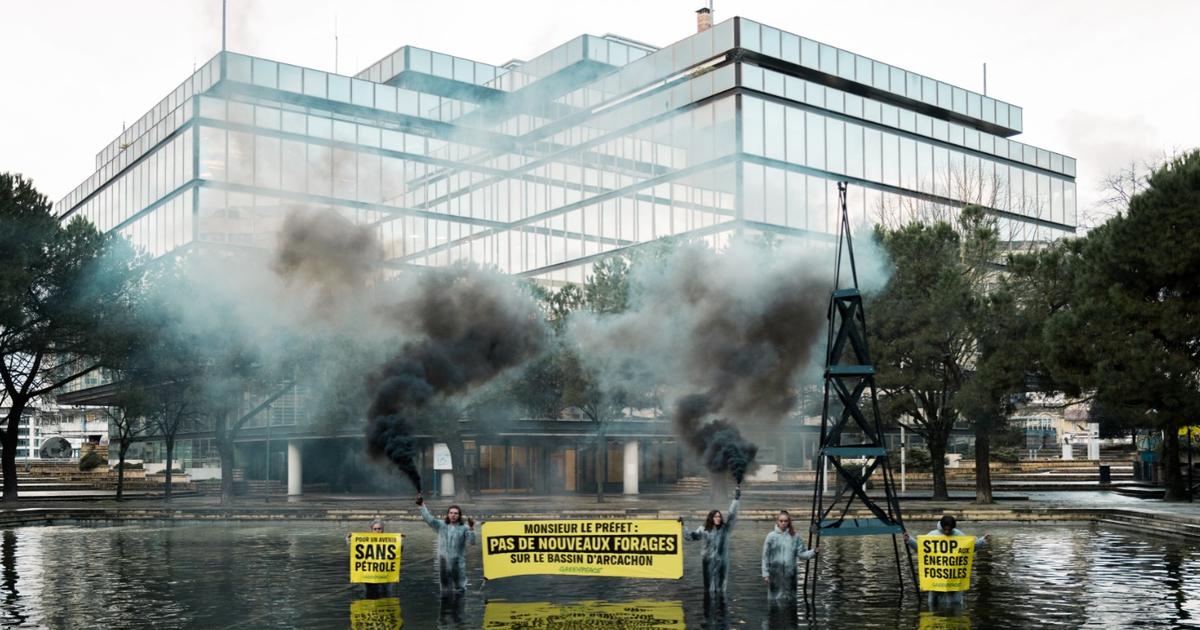The Boiro forest fire, which has burned more than 2,200 hectares in A Coruña this past weekend.ÓSCAR CORRAL
The poor forecasts in the face of the energy crisis aggravated by the war in Ukraine, the current difficulties in different countries on the planet or the desperate lack of progress in the face of climate change do not give much optimism.
But for current collapsists, many of these problems today are not conjunctural, but rather evidence of the cracking of a system that is really collapsing.
Although this vision is not new and has been established in a part of environmentalism for years, some of its approaches are now producing a clash between environmentalists in Spain due to its catastrophic discourse and for fueling the rejection of the current deployment of renewable energies.
"My diagnosis is that we are going to hell," says Antonio Turiel, a CSIC researcher and the most visible face of the collapsists in Spain.
According to the author of
Petrocalipsis,
“if we collapse it is because we want to, it is not mandatory”, but to avoid it, the system must be completely transformed: “If we do not abandon capitalism then we will collapse, it is simple”, he has been warning for years.
One of the main theses of this current is that it is unfeasible to replace all the fossil fuels (oil, gas and coal) currently used by renewables, due to the scarcity of materials and the dependence of these green technologies on conventional energies.
"No one has managed to assemble a wind turbine or a photovoltaic panel without fossil energy being involved in the process of extracting materials, manufacturing components, transport, installation or maintenance," emphasizes Turiel.
Thus, as this promoter defends, to avoid disaster, we must stop working on energy transformation (with renewables or the electric car) and begin to decrease, to drastically reduce the need for energy and other materials.
"It is not true that we have to go back to the caves or to the Middle Ages, there are studies that ensure that energy consumption in Spain can be reduced by 90% without changing our standard of living," says this trained physicist who conducts research at the Institute of Sciences of the Sea of Barcelona.
“It is not about making things more efficient, but about doing much less.
Perhaps it is necessary to consider that the private automotive industry has to be eliminated, ”says Turiel.
Antonio Turiel, researcher at the CSIC's Institut de Ciències del Mar, in Barcelona.
Massimiliano Minocri
Although the environmental world shares the defense of planetary limits, some of the most extreme approaches of the collapsists have begun to be criticized in public by environmental activists and energy experts.
According to the environmentalist and politician Héctor Tejero, from Más Madrid, "the problem is that, involuntarily, they are feeding the perception that there is nothing to do, when in fact it is possible to make an ecological transition towards a better world."
The climate communicator Andreu Escrivá does not doubt that consumption must be reduced or pay close attention to the scarcity of minerals, but he also considers that this discourse of collapse "disincentives and demotivates".
“Such blunt statements lead us to flirt with a kind of ecofascism that can lead us down very dangerous paths,
because when we give such beastly messages, what we are going to do is make people refractory, thinking that we want to take away their freedom, that we want to take away their lifestyle”, comments this environmentalist.
"If the alternative is to reduce energy consumption by 90% or collapse, maybe I'll choose collapse, whatever that is," says Eloy Sanz, professor of energy engineering at the Rey Juan Carlos University, ironically, who assures that the collapsists use scientific data in a biased way.
The journalist Juan Bordera, who signs the book
The Autumn of Civilization together with Turiel,
does not consider himself a collapsist, but believes that the collapse “is quite probable, taking into account inertia and that we would not be the first civilization to collapse either: there are 26 civilizations that have collapsed before ours”, he says.
“If we do not recognize the problem we will not be able to face it and it is not being recognized because doing so would force us to change many things, not only in the way of living at an individual level.
As a system we should be making a very serious, very fast transformation, which is not wanted or does not know how to do”.
The environmentalist Escrivá does not agree with this, who defends that "the most successful path of transformation does not go through drawing apocalyptic horizons and blaming the citizens, but by establishing collective strategies, transformation policies and, above all, with a key question What is redistribution?
As he emphasizes, "there is a quote from Raymond Williams that says that to be truly radical is to make hope possible, rather than despair convincing."
With regard to the issue of minerals and renewable energies, one of the specialists closest to collapsist circles is Alicia Valero, a researcher at the Circe Institute of the University of Zaragoza, who assures that "with the current reserves, that is, , with the deposits in operation today, fossil fuels cannot be replaced by renewables on a planetary scale”.
“We have carried out studies and they do not give the numbers for more than a dozen raw materials that are essential for the ecological transition,” says the researcher.
This is limited to known reserves today, it does not take into account mineral resources that may be found in the future.
However, according to Valero, "opening a deposit takes an average of 15 years, so there is a problem here, because we urgently need it."
Among the most critical voices with some of the collapsist approaches is Pedro Fresco, an expert in renewable energies and general director of Ecological Transition of the Generalitat Valenciana, who underlines that the amount of lithium reserves in 10 years has multiplied by two, according to increased your search.
"How many there are?
We don't know,” he notes.
"You can run out of lithium, okay, but there is no technological predeterminism that says that energy storage has to be done with lithium batteries."
In his opinion,
“c
whenever something new has appeared, human beings have thought that it was not possible for the new to replace the old”.
“One of their typical arguments against renewables is that they are made with fossil fuels.
Of course, and the train tracks in the eighteenth century were made with horses.
According to Fresco, “the problem is that the anti-renewable movements have found an excuse in collapsist ideas to sustain their position, without falling into climate denialism or NIMBY [Not In My Backyard].
As these gentlemen tell me that it is worthless and that it is a lie from the industry, because I reject renewables in my territory and I do not feel immoral, so to speak”.
Limited alternatives
Another referent of the collapsist view is Margarita Mediavilla, a researcher at the Energy, Economy and System Dynamics Group (GEEDS) of the University of Valladolid, who has been working on these issues for almost 10 years.
As she says, “transition alternatives, both energy and ecological, in a broad sense, are much more limited than is thought.
The basic problem is that we have a society and an economy designed for growth, the capitalist economy is very good when it has abundant resources, because it has the capacity to exploit them to the maximum, but when it encounters material limits it is unable to adapt”.
"I agree with Turiel that if we are not capable of changing this socioeconomic dynamic, then we are simply going to collapse, even in a collapse that can be hard," says Mediavilla,
“It is true that we are going to face a very turbulent historical period in which the risk of social failure is high.
I believe that collapse is a possibility, but in no case is it a destiny nor can we take it for granted that we are collapsing, if we define collapse in a rigorous way”, replies Emilio Santiago Muiño, who is dedicated to research in transformations anthropological studies of the climate crisis of the CSIC.
“Where I debate with collapsist colleagues with more force is in the political hypothesis of thinking that the turbulence that is coming will necessarily lead to something like a kind of failed state.
In fact, a certain disregard for the State and a commitment to what they call solutions of community resilience, of self-management, tend to be very common in collapsist positions.
As if assuming that our political order is going to break down because energetically it is not going to be functional and that the political solutions are going to have to come through a return to the communities, to the rural world, to self-management from the local.
That is where I think the diagnosis fails, because thinking like that makes us miss out on the political battle that is going to take place and therefore the results are going to be much worse.”
This anthropologist was linked in the past to collapse, but today he rejects this trend.
"Sometimes the collapsing discourse has certain deterministic tics that are very common when people who have a background in natural sciences start speculating about the social, because the social is much more complex," says Santiago Muiño.
“It is true that we are facing a strong systemic crisis, with a central energy component, and that we have geological limitations.
All that is true.
But with a little more room for maneuver than I thought.
“And then I also realized that you cannot do majority politics from a speech like that.
The mixture of these two issues led me to move away from collapsist circles a bit”, he points out.
You can follow CLIMA Y MEDIO AMBIENTE on
and
, or sign up here to receive
our weekly newsletter
50% off
Subscribe to continue reading
read without limits
Keep reading
I'm already a subscriber












/cloudfront-eu-central-1.images.arcpublishing.com/prisa/KMEYMJKESBAZBE4MRBAM4TGHIQ.jpg)


